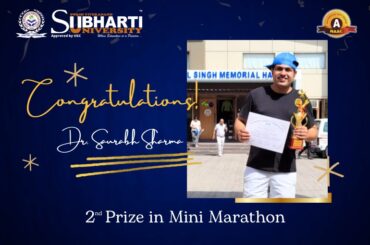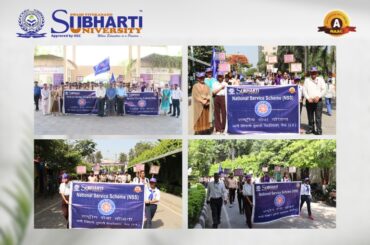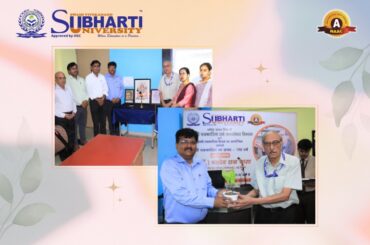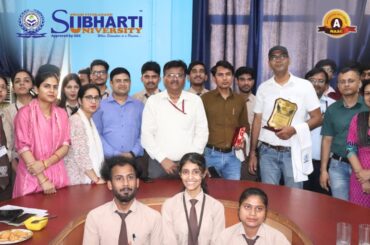Workshop on OBE and Bloom’s Taxonomy
Conducted By
Department of Languages, FASS, SVSU
on 19th July 2023
Department of Languages, FASS, SVSU conducted a departmental workshop on Bloom’s Taxonomy to put into practice the guidelines of UGC for syllabus structuring, paper setting and evaluation process in higher education system. The objective of the workshop was to implement the outcome based education for curriculum development and evaluation to achieve the best learning outcome. Workshop started with the welcome note by Dr. Tushti Sharma, Professor and Head, Department of Languages. She introduced the session by asserting on Bloom’s Taxonomy that it assists teachers in evaluating their teaching methods and students’ learning.
By setting clear objectives, it aids in lesson planning and allows for assessing the difficulty of tasks. Additionally, it encourages critical thinking and enables teachers to adjust question complexity to foster higher levels of learning in students.
Following her, Dr. Seema Sharma, Associate Professor, Hindi, discussed the 6 levels of Bloom’s Taxonomy 2001 -Remembering, Understanding, Applying, Analyzing, Evaluating and Creating that are used to structure the learning outcomes, lessons, and assessments of the course. She also described the three Domain of bloom’s Taxonomy- Cognitive, Affective and Psychomotor which should be kept in mind while designing the curriculum and question paper for UG and PG Students.
Dr. Rafat Khanam, Asso. Prof., English, discussed the practical implementation of six levels while drafting the question paper and during the assessment and evaluation process. Dr. Yashpal Sharma, Dr. Manisha Sharma, Dr. Shobha Ratudi, Dr. Arun Kumar, Dr. Ranveer Singh, Ms. Swati Sharma, Mr. Rupendra also presented their best opinions and valuable suggestions for implementing the bloom’s taxonomy in the forth coming sessions.At the end of the session Dr. Tushti Sharma, reiterated that Bloom’s Taxonomy offers a transition from traditional learning to more advanced methods, promoting active engagement in the learning process. Its main aim is to foster true understanding, as passive learning hinders the development of cognitive skills in students. The session ended with an emphasis to follow the bloom’s guidelines while designing syllabi, question papers and practical assessments. The workshop ended with the knowledge, learning and pleasant expressions.







